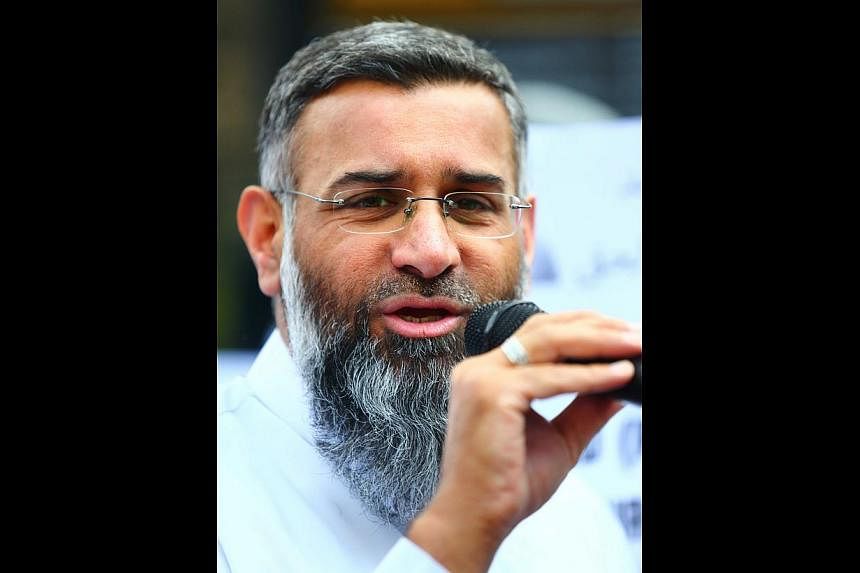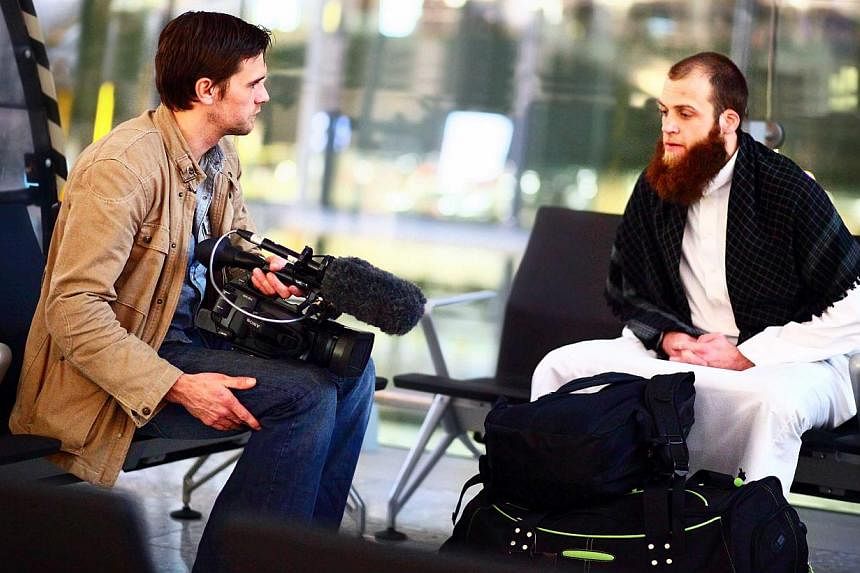Richard Dart seemed to be a sensitive if aimless young British man whose life suddenly snapped into focus after he discovered religion.
The problem was, it was under the tutelage of Anjem Choudary, a British Islamic preacher known for his extreme views, among them that syariah law should be enforced throughout the United Kingdom.
Dart's stepbrother, Robb Leech, made a documentary about him that was broadcast in 2011. In the critically acclaimed My Brother The Islamist, the film-maker reached out to Dart, now named Salahuddin, both as a film-maker and as a family member who sought to reconnect with the boy he had played football with back in Dorset.
Instead, Leech found an angry ideologue in robes and a beard who refused to shake hands because his stepbrother was "unclean".
Last year, Dart was arrested and given a six-year sentence for planning to go to Pakistan to seek terror training with the Taleban.
In Leech's follow- up film, My Brother The Terrorist, he retraces the steps his stepbrother took on the path to violence.
He interviews imam and psychologist Alyas Karmani, and scores a few minutes on-camera with radical preacher Choudary himself, hoping to find out how a white, middle-class boy could grow into a man eager to fight and die for the side that was killing soldiers from his own country.
"Part of me is angry with Richard," Leech, 30, says in the film.
"But I don't really know who to blame for that. I want to figure it out - how it happened, why it happened and what can be done to stop it from happening," he says, speaking to the camera.
Speaking to Life! on the telephone from London, Leech talked about how his stepbrother fit the profile of persons most at risk for joining radical groups.
Dart's biological father had walked away when he was very young, and that absentee-father trauma is fairly common in the lives of people who join radical groups, he says. His mother then married Leech's father when both boys were around six years old.
"Richard was too vulnerable. He had a crisis of identity and, for whatever reason, he didn't feel like he belonged in the Western world. He needed to attach a purpose to his life," says Leech.
Choudary came along and, as detailed in his first documentary, Dart found not just a father figure, but also a community which embraced him and eased what must have been his crushing loneliness, giving his life fresh meaning.
Based on what they see of British Islamists on television, outsiders imagine that extremists are who they are because they are hateful, twisted or evil. Leech, after meeting his stepbrother and his friends, learnt that this assumption is false and not helpful in stopping extremism.
"In the West, we tend to avoid accepting responsibility for the radicalisation process," he says. Western foreign policy in Asia and the Middle East create feelings of religious persecution, and these emotions are exploited by the likes of Choudary.
Choudary, meanwhile, is a favourite of the British news media when they need a bogeyman to drive up ratings or sell newspapers. The preacher, in turn, basks in the attention he gets when he makes provocative statements, even if they are all negative. However, the trained lawyer in him pulls up just short of anything that could land him in trouble.
As Leech explains, Choudary is rejected by mainstream Muslims in Britain. With such a tiny following, white recruits such as Dart become valuable propaganda tools. He and other white converts are asked to stand in the front ranks during protests. Choudary was recently arrested on suspicion of encouraging terrorism and was released on bail last week.
His recruiting mission is aided by Internet- sourced material, such as leaked military videos from Iraq and Afghanistan, showing bodies shattering as shells from American helicopter gunships slam into them. The grisly clips of the hugely unequal fight, among others, are screened repeatedly to his followers to stoke sectarian rage.
"You need to get into the heads of these people. They are immersing themselves in stuff like that day in, day out. You can see why they are so angry and why they want to go out and fight," says Leech.
My Brother The Terrorist airs on BBC World News (StarHub TV Channel 701) on Saturday at 10.10am & 11.10pm. It will be repeated on Sunday at 5.10pm and Monday at 5.10am.


